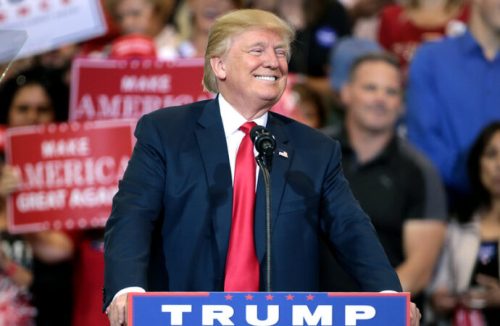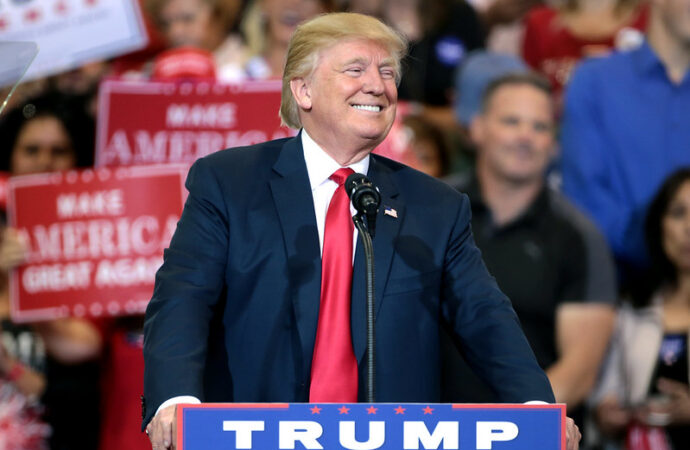
Those of us who voted for Trump the first time around were surprised to learn after the fact that it was not us, but instead Russian trolls, who catapulted the real estate magnate into the White House. We were told that Russian trolls “hacked” the election—and that Trump was complicit.
This was, of course, a bunch of nonsense—as was the phony Mueller investigation. That’s been obvious from the get-go to anyone with an ounce of common sense. But now even the mainstream media has been forced to acknowledge that Russian Twitter trolls had minimal, if any, impact on the 2016 election.
Case in point: A Jan. 9 article in The Washington Post titled “Russian trolls on Twitter had little influence on 2016 voters.” Truth be told, I was shocked to see a major liberal media outlet so bluntly publishing a headline at odds with the official narrative. At any point during Trump’s four years in office, it would have been nearly unthinkable for The Washington Post to publish something like this. Indeed, the author of this WaPo piece was behind a 2019 article titled “Russia’s manipulation of Twitter was far vaster than believed.”
The mainstream media is about six years late to the party. But better late than never, I suppose.
In the article, its author Tim Starks reviews the findings from a recent study from the New York University Center for Social Media and Politics titled “Exposure to the Russian Internet Research Agency foreign influence campaign on Twitter in the 2016 US election and its relationship to attitudes and voting behavior.”
The study “explores the limits of what Russian disinformation and misinformation was able to achieve on one major social media platform in the 2016 elections.” Given the left-leaning bias in academia, it’s noteworthy that such an inquiry was carried out at all.
Josh Tucker, who co-authored the report and serves as co-director of NYU’s Center for Social Media and Politics, had some interesting things to say on the subject of Russian trolling. “My personal sense coming out of this is that this got way overhyped,” Tucker told The Washington Post.
Tucker also spoke to the limited effect of Russian propaganda during the 2016 election. “Now we’re looking back at data and we can see how concentrated this was in one small portion of the population, and how the fact that people who were being exposed to these were really, really likely to vote for Trump,” he said. “And then we have this data to show we can’t find any relationship between being exposed to these tweets and people’s change in attitudes.”
As to the specific findings of the study, a few stand out.
- “Only 1% of users accounted for 70% of exposures [to Russian disinformation accounts].”
- “Exposure was concentrated among users who strongly identified as Republicans.”
- “Exposure to the Russian influence campaign was eclipsed by content from domestic news media and politicians.”
- “[There is] no evidence of a meaningful relationship between exposure to the Russian foreign influence campaign and changes in attitudes, polarization, or voting behavior.”
In other words, the vast majority of people exposed to tweets from Russian trolls were Republicans and thus in most cases already Trump supporters, rendering the entire operation ineffective.
No conservative will be shocked to find out that their support for Trump in 2016 was not, in fact, the result of Russian propaganda. Liberals who bought into establishment propaganda—those same sad souls who believed Robert Mueller was going to put Trump behind bars—would do well to reflect on these findings.
The WaPo piece is careful to emphasize that “the study doesn’t go so far as to say that Russia had no influence on people who voted for President Donald Trump.” This is because the study in question “doesn’t examine other social media, like the much-larger Facebook” but is instead exclusively focused on Twitter.
If the evidence indicates that Russian Twitter trolling had virtually zero effect on voters in 2016, why should we believe that such efforts would be any more successful on Facebook? Admittedly, we do not know without the data. But to me, the safe bet appears that no one was greatly swayed by the efforts of Russian trolls on Facebook either.
The WaPo article also references a 2018 study from University of Pennsylvania communications professor Kathleen Hall Jamieson which “suggested those [Russian hack-and-leak operations] probably played a significant role in the 2016 race’s outcome.” Parsing this particular study is beyond the scope of this article, but it’s noteworthy that the mainstream media to this day insist that the 2016 election was rigged by Russia in Trump’s favor.
The fact of the matter is that the 2016 election was legitimate. Trump spoke to the average American, whereas Hillary appealed to liberal urbanites. And those of us who voted for the former certainly didn’t need Russian trolls to grasp who was better for the country.
Except where otherwise noted, the content on this site is licensed under a Creative Commons Attribution-ShareAlike 4.0 International License. By Stephen Whitney
Image credit: Flickr-Gage Skidmore, CC BY-SA 2.0
